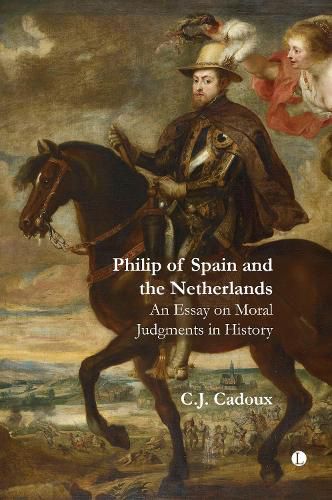Readings Newsletter
Become a Readings Member to make your shopping experience even easier.
Sign in or sign up for free!
You’re not far away from qualifying for FREE standard shipping within Australia
You’ve qualified for FREE standard shipping within Australia
The cart is loading…






In Philip of Spain and the Netherlands, C.J. Cadoux discusses the expression of moral judgements regarding leading figures in major historical events. Indeed, Cadoux, using the case of the Dutch Revolt, questions whether it is possible at all to assess moral quality without adequate knowledge of the relevant facts, at least. First published in 1947, Cadoux's approach presents all history, whether national or personal, from a disinterested approach. This consistency of approach allows for a clear and concise depiction of events and persons that is not skewed by an overbearing opinion. He posits that in the great struggle between Spain and the Netherlands in the sixteenth century, a new ethic of Christian mercy is discernible. Cadoux concludes his book by asking the reader 'in whose behaviour there can be seen some promise of better and humaner things?', reinforcing the inherent difficulty that remains when passing moral judgement.
$9.00 standard shipping within Australia
FREE standard shipping within Australia for orders over $100.00
Express & International shipping calculated at checkout
In Philip of Spain and the Netherlands, C.J. Cadoux discusses the expression of moral judgements regarding leading figures in major historical events. Indeed, Cadoux, using the case of the Dutch Revolt, questions whether it is possible at all to assess moral quality without adequate knowledge of the relevant facts, at least. First published in 1947, Cadoux's approach presents all history, whether national or personal, from a disinterested approach. This consistency of approach allows for a clear and concise depiction of events and persons that is not skewed by an overbearing opinion. He posits that in the great struggle between Spain and the Netherlands in the sixteenth century, a new ethic of Christian mercy is discernible. Cadoux concludes his book by asking the reader 'in whose behaviour there can be seen some promise of better and humaner things?', reinforcing the inherent difficulty that remains when passing moral judgement.